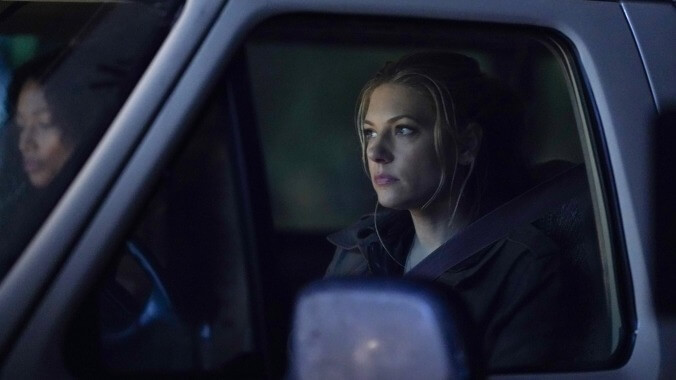Big Sky producers respond to “cultural insensitivity” criticism from Indigenous groups

Big Sky, David E. Kelley’s latest for ABC, is a crime drama adaptation of the C.J. Box novel The Highway, in which two investigators uncover a series of abductions while trying to find two particular teen girls who have gone missing. The series stars Kylie Bunbury and Katheryn Winnick as Cassie and Jenny, respectively; the former is a private detective while the latter is an ex-cop. They scour Montana’s remote highways in search of the girls, as well as the perpetrator, generating viewer suspense along the way. But Indigenous and Native American groups have criticized the series’ centering of white women in a story that mirrors that of the epidemic of abducted Native women in Montana (and throughout Indian Country).
Entertainment Weekly reports that “a collective of Indigenous organizations” sent an open letter to ABC ahead of Big Sky’s November premiere. The publication excerpted the letter:
We write with serious concerns of at best, cultural insensitivity, and at worst, appropriation, in respect to the soon- to-be premiered series, Big Sky. We understand that the plot of Big Sky is based on C. J. Box’s novel The Highway. Unfortunately, neither Big Sky nor The Highway address the fact that the disproportionate majority of missing and murdered women in Montana are Indigenous, a situation replicated across Indian Country, which has made this tragedy an existential threat to Native Americans. To ignore this fact, and to portray this devastation with a white female face, is the height of cultural insensitivity, made even more egregious given the national awakening to the need for racial justice.
These same groups were also behind the documentary Somebody’s Daughter, which addresses “the crisis of Missing and Murdered Indigenous Women with a particular emphasis on Montana.” Although Indigenous people comprise 7% of Montana’s total population, the letter notes, a quarter of the state’s missing persons are Native American. ABC did not respond to the letter last month, but on December 1, the network issued a statement to publications like EW and the Associated Press. The statement was issued on behalf of Big Sky’s producers, including David E. Kelley and C.J. Box, and indicated that “[a]fter meaningful conversations with representatives of the Indigenous community, our eyes have been opened to the outsized number of Native American and Indigenous women who go missing and are murdered each year, a sad and shocking fact. We are grateful for this education and are working with Indigenous groups to help bring attention to this important issue.”
In a statement released in response to the ABC letter, Tom Rodgers, president of the Global Indigenous Council expressed concern that, though “ABC Studios claimed it is working with Native Americans to fix the problem of ignoring the epidemic of violence against Native American women in its series, Big Sky,” he knew of no Indigenous organization actually working with ABC to “[remedy] the injustice done by” the show. Rodgers’ letter continued: “So we’re interested in learning who ABC is working with, since it is curious that no purported Indigenous partners are named in its statement. In our culture, trust can only be earned, not promised.”
Rain, the director of Somebody’s Daughter, tells the AP that “Indigenous leaders are reaching out to ally and inform, to open a dialogue.” The groups are “not asking for Big Sky to be taken off the air,” but to be used to raise awareness of the thousands of Native women who have been reported missing in the U.S. (5,000 in 2016 alone). According to the AP, the November letter to ABC did ask that the network to add “an on-screen message steering viewers to information about the entrenched peril facing Indigenous women in North America.” At the time of this writing, there had been no further response from Big Sky’s producers or network.